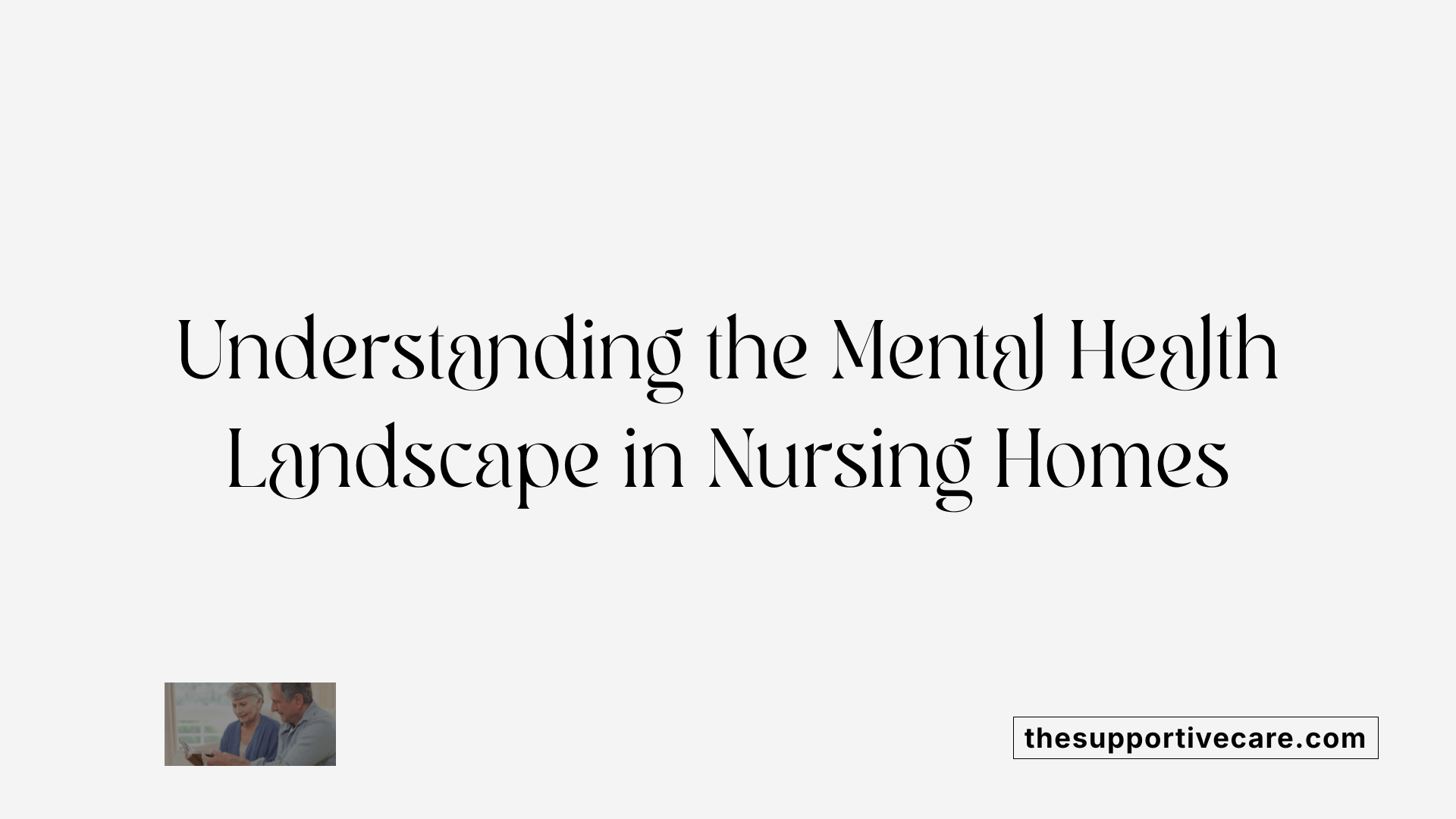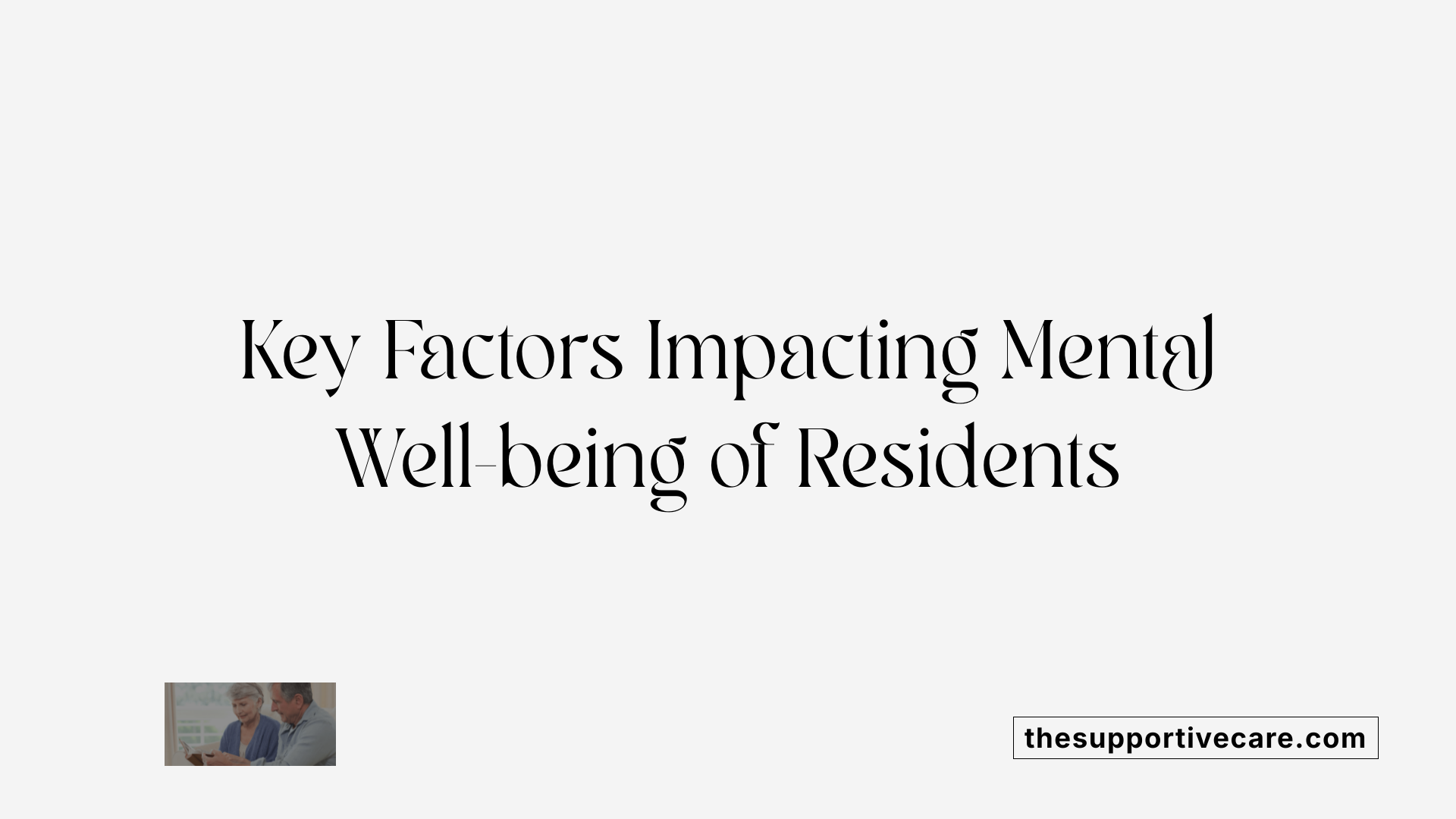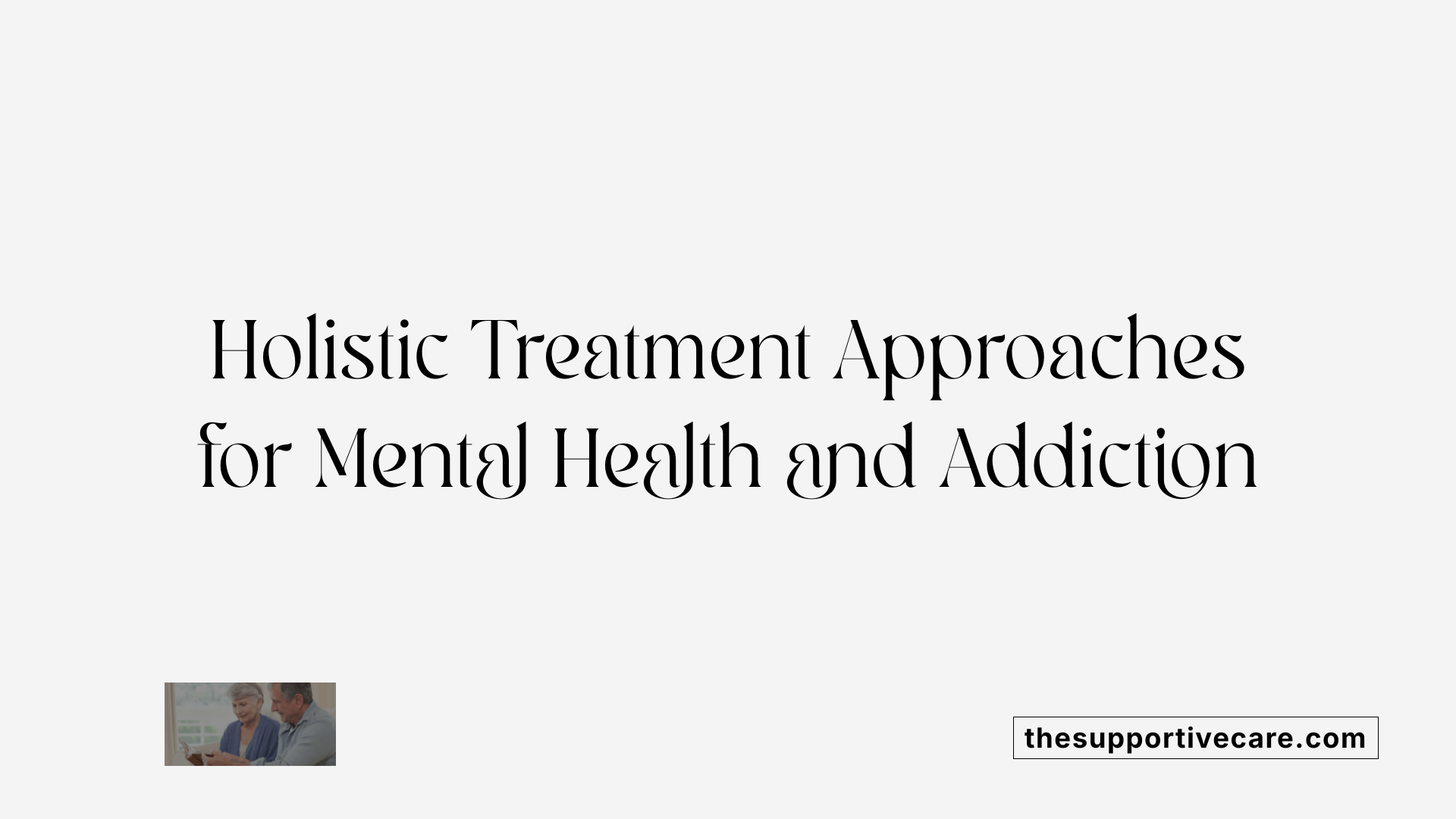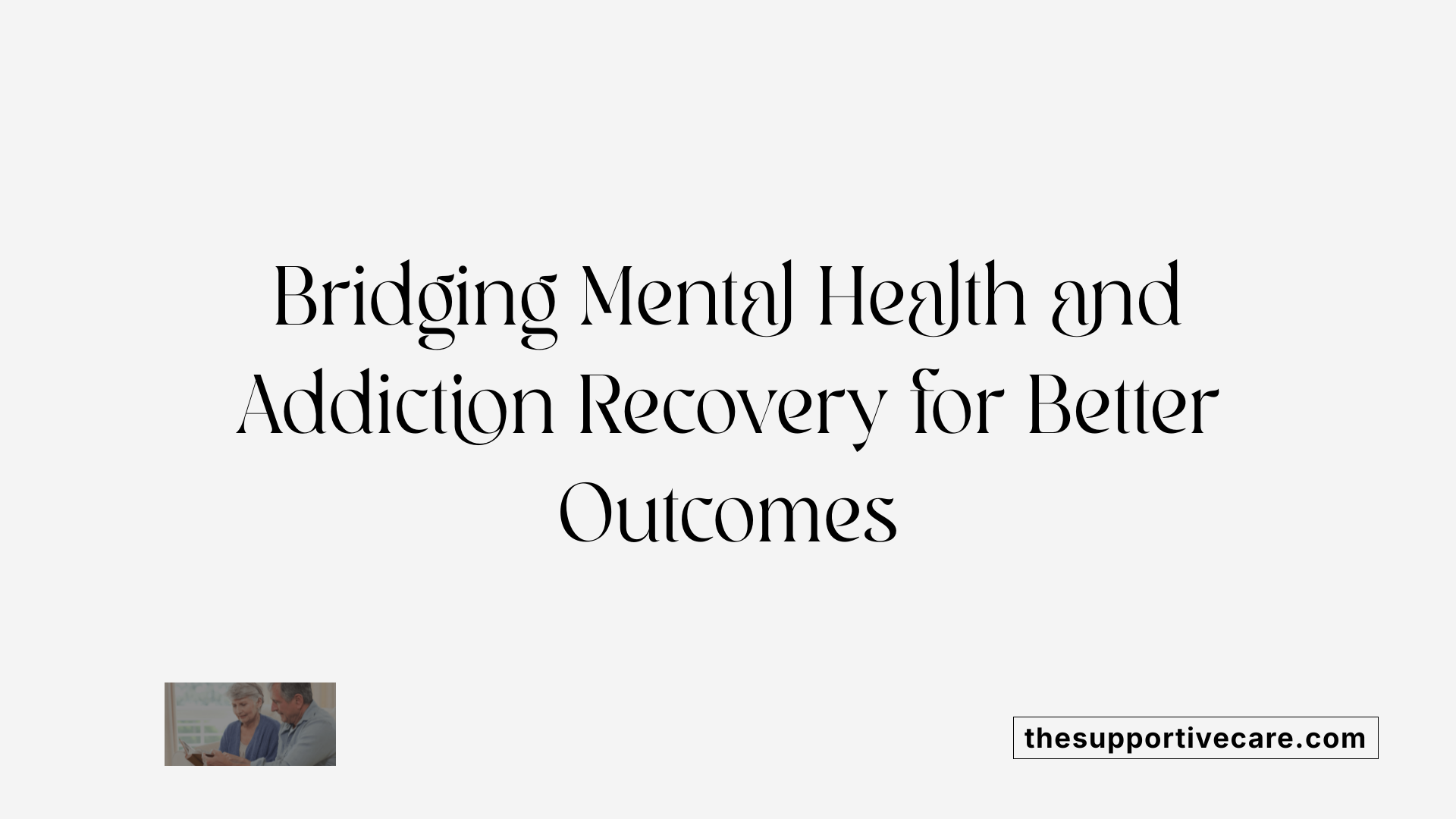Understanding Anxiety and Mental Health in Nursing Home Residents
Anxiety among nursing home residents is a prevalent concern that significantly affects their quality of life and overall well-being. With up to 90% of residents experiencing some form of mental disorder, including anxiety, depression, and serious mental illnesses, effective management strategies are essential. This article explores comprehensive approaches to managing anxiety within nursing facilities by examining the underlying causes, treatment modalities, staff roles, environmental adjustments, and policy innovations to enhance care for this vulnerable population.
Prevalence and Types of Mental Health Disorders in Nursing Home Residents

How prevalent are mental health disorders among nursing home residents?
Research from the National Institutes of Health (NIH) shows that a significant majority—between 65% and 90%—of residents in nursing homes experience mental health disorders. These encompass a broad range of conditions including anxiety, depression, bipolar disorder, schizophrenia, and other serious mental illnesses. Anxiety alone affects up to 20% of nursing home residents, highlighting the widespread nature of these challenges within these facilities.
What common mental health disorders affect nursing home residents?
Nursing home residents commonly suffer from several mental health conditions:
Major Depressive Disorder (MDD): Symptoms include persistent depressed or irritable mood, loss of interest in activities, fatigue, withdrawal, feelings of worthlessness or guilt, and increased sensitivity to stimuli like noise or light.
Bipolar Disorder: Characterized by alternating episodes of mania—marked by euphoria, increased energy, insomnia, rapid speech, and risky behaviors—and depressive states featuring low energy, hopelessness, and thoughts of death or suicide.
Schizophrenia: This disorder manifests through delusions, hallucinations, disorganized thinking and speech, abnormal behaviors, neglect of hygiene, and suicidal ideation.
Anxiety Disorders: Affecting up to one-fifth of residents, anxiety can be fueled by factors such as social isolation and physical health decline.
What factors contribute to these mental health issues?
Several factors in nursing home settings contribute to mental health problems, including social disconnection, chronic pain, declining cognitive capacity, grief, loss of independence, and the often isolating nature of institutional living.
The presence of these disorders underscores the need for tailored mental health services and interventions within nursing homes to support resident well-being and quality of life.
Underlying Factors Contributing to Anxiety in Nursing Home Residents

Social isolation and loneliness
Social isolation is a major contributor to anxiety and depression among nursing home residents. The limited social interactions that many residents experience can lead to feelings of loneliness and emotional distress. Initiatives that promote communal activities, group outings, and intergenerational programs can help reduce this sense of isolation and improve residents' mood.
Loss of independence and grief
Many nursing home residents face a loss of independence which profoundly affects their mental health. Alongside grief over personal and social losses, this reduced autonomy can increase feelings of anxiety and depression. Addressing these emotional challenges requires person-centered approaches that respect residents' choices and support their emotional well-being.
Physical health issues such as chronic pain and mobility limitations
Physical ailments like chronic pain and restricted mobility significantly increase anxiety and depressive symptoms. These conditions not only cause discomfort but also limit residents' abilities to engage in activities, further compounding feelings of helplessness. Early management through pain control and physical therapy is crucial in mitigating these effects.
Cognitive decline impacts
Declining cognitive capacity is another important factor linked to mental health deterioration. As residents experience memory loss or confusion, anxiety may increase due to uncertainty and frustration. Providing tailored cognitive support and routine mental health screenings can help detect and alleviate these challenges promptly.
Overall, factors increasing anxiety and depression include limited social interactions, loss of independence, chronic pain, mobility limitations, separation from family, social isolation, and cognitive decline, all contributing to mental health deterioration among residents. A comprehensive approach addressing these areas is essential to improve the psychological well-being of nursing home residents.
Comprehensive Treatment Services Available for Mental Health and Substance Use Disorders

What types of comprehensive treatment services are available for substance abuse, mental health issues, and various forms of addiction?
Comprehensive treatment for mental health and substance use disorders in nursing home residents involves a multidisciplinary approach that addresses the complex needs of older adults. This includes medical detoxification and medication management to safely manage withdrawal symptoms and ongoing psychiatric conditions.
Individual and group counseling are critical components, offering residents tailored support through personal and shared experiences. Behavioral therapies such as Cognitive Behavioral Therapy (CBT) focus on changing harmful thought patterns and behaviors related to mental illness and addiction.
Peer support programs provide social connections and encouragement, which are vital for overcoming isolation—a common challenge in nursing facilities. Furthermore, relapse prevention strategies help maintain long-term recovery by equipping residents with skills to handle triggers and stressors.
These integrated services recognize the interplay of biological, psychological, and social factors in mental health and addiction, fostering a holistic framework that supports sustainable recovery and well-being.
Together, these treatments form a comprehensive, person-centered care model adapted to the unique challenges nursing home residents face, such as cognitive decline, chronic physical illness, and social isolation. This approach improves outcomes by combining evidence-based clinical practices with supportive community resources and ongoing education for staff and residents alike.
Integrating Mental Health Care with Addiction Recovery in Nursing Facilities

How Do Treatment Programs Integrate Mental Health Care with Addiction Recovery?
Treatment programs in nursing facilities integrate mental health care with addiction recovery by employing coordinated approaches that address both mental health disorders and substance use disorders simultaneously. This dual diagnosis service framework ensures comprehensive treatment plans incorporating individual and group therapies, pharmacological interventions, psychosocial support, and family involvement to meet each resident’s unique needs.
Collaborative and Integrated Care Models
These care models promote close cooperation between behavioral health specialists, nursing staff, social workers, and primary care providers. Multidisciplinary teams create personalized plans facilitating early detection and management of co-occurring disorders. Programs such as the 4Ms for Behavioral Health emphasize holistic approaches addressing "What Matters," "Medication," "Mentation," and "Mobility" to enhance overall well-being and recovery prospects.
Use of Telehealth and Community-Based Programs
Tele-behavioral health services have expanded access by connecting residents and staff to specialists remotely, overcoming geographic and staffing challenges. States like California and Vermont utilize telehealth consultation programs like Project ECHO for this purpose. Community-based programs, including peer support groups and recovery-oriented social activities, supplement clinical treatments by fostering engagement and reducing social isolation.
Crisis Response and Stabilization Resources
Nursing facilities leverage crisis stabilization units and rapid response teams trained in de-escalation and trauma-informed care to manage acute episodes effectively. Training programs such as mental health first aid and behavioral health assessments equip staff with skills to intervene promptly and appropriately, preventing hospitalizations and promoting resident safety.
Integrating mental health and addiction recovery services in nursing home settings results in better access, continuity of care, and improved outcomes for residents facing complex behavioral health challenges.
Behavioral Therapies as a Core Component of Treatment

What role do behavioral therapies play in treating substance abuse and mental health disorders?
Behavioral therapies are crucial in the treatment of substance abuse and mental health disorders among nursing home residents. Approaches such as cognitive-behavioral therapy (CBT) and motivational interviewing enable individuals to modify harmful thought patterns and behaviors. These therapies focus on improving coping skills, enhancing motivation for change, and addressing psychosocial challenges.
CBT specifically helps residents recognize and adjust negative thinking involved in conditions like depression, anxiety, or substance use disorders. Motivational interviewing complements this by boosting a resident’s readiness and willingness to engage in treatment and maintain adherence to prescribed medication or behavioral plans.
By targeting both behavioral and cognitive factors, these therapies reduce substance use, alleviate symptoms of mental illness, and improve overall quality of life. Their evidence base is solid; numerous studies validate that integrating behavioral therapies with medication and psychosocial interventions yields significantly better outcomes than medication alone.
For nursing home residents, the individualized nature of behavioral therapies offers a pathway to regain a sense of control and empowerment despite mental health challenges. Such therapies are essential components of comprehensive, multidisciplinary care that addresses the psychological, social, and medical needs of older adults in long-term care settings.
Importance of Aftercare Support in Sustaining Recovery

How important is aftercare support following primary treatment for addiction and mental health issues?
Aftercare support plays a vital role in helping nursing home residents maintain progress achieved during primary treatment for addiction and mental health disorders. This ongoing support includes counseling, peer support groups, and personalized relapse prevention plans that address individual triggers and needs.
Counseling and peer support post-discharge
Post-discharge counseling provides residents with professional guidance to cope with everyday challenges, reinforcing skills learned during treatment. Peer support programs offer a sense of community and shared experience, which can reduce feelings of isolation—a significant issue affecting mental health in older adults. Programs like those piloted in various states involve trained peers who understand mental health struggles, fostering trust and ongoing motivation.
Relapse prevention and personalized care plans
Relapse prevention strategies embedded in aftercare planning are essential to minimize risks of returning to harmful behaviors. These plans often include medication management, regular mental health screenings, and psychosocial interventions tailored to the resident’s condition. Personalized care helps accommodate the heterogeneity of mental disorders, promoting better treatment adherence and quality of life.
Sober living environments and community engagement
Sober living environments and community-based activities assist residents in rebuilding social connections and practicing independence safely. Engagement in group activities, recreational programs, and therapeutic interventions such as art or music therapy contribute to sustained well-being. These community-based supports align with proven strategies to counteract social isolation and depression frequently encountered in nursing facilities.
The integration of these aftercare components effectively reduces relapse rates and enhances overall mental health outcomes. Reinforcing mental health support after primary treatment is indispensable for long-lasting recovery in nursing home populations.
Person-Centered Approaches to Reduce Anxiety in Nursing Home Residents

Individualized Activity and Care Plans
Creating personalized activity and care plans tailored to each resident's preferences and needs is a cornerstone of reducing anxiety in nursing home settings. Such plans allow residents to engage in meaningful activities that resonate with their interests and capabilities, fostering a sense of purpose and well-being.
Encouraging Autonomy and Choice
Encouraging residents to make choices about their daily routines and activities helps reinforce autonomy and control, which are often diminished in institutional settings. This empowerment can alleviate feelings of helplessness and anxiety by promoting personal agency.
Recreational Therapies: Art, Music, Gardening, Pet Therapy
Recreational therapies provide therapeutic benefits beyond simple entertainment. Art and music therapy facilitate emotional expression and stress relief, while gardening offers physical activity combined with sensory engagement. Pet therapy introduces companionship and comfort, all contributing to reduced anxiety levels among residents.
Reminiscence Therapy and Social Engagement
Reminiscence therapy involves encouraging residents to recall and share past experiences, which can enhance mood and cognitive function. Combined with social engagement activities such as group outings, communal dining, and intergenerational programs, these approaches combat social isolation and loneliness—primary contributors to anxiety and depression in nursing home populations.
By integrating these person-centered strategies, nursing homes can effectively address anxiety and improve the overall mental health and quality of life for their residents.
Role of Staff Training and Communication in Managing Anxiety

Importance of Mental Health Awareness and Trauma-Informed Care
Staff training programs in nursing homes emphasize mental health awareness and trauma-informed care as foundational elements. Understanding residents' mental health conditions, especially anxiety and depression, equips staff to recognize symptoms early and respond compassionately. Trauma-informed care further ensures that interactions do not inadvertently worsen residents' distress, fostering a safe environment.
Communication Techniques: Active Listening and Empathy
Effective communication is crucial in managing anxiety in nursing home residents. Staff trained in active listening can attentively hear residents’ concerns without interruptions, enhancing trust. Empathy allows caregivers to tune into the emotional experience of residents, validating their feelings which can reduce anxiety and feelings of isolation.
Staff Self-Care to Prevent Burnout
The demanding nature of caregiving can lead to staff burnout, which negatively impacts quality of care. Training programs encourage self-care among staff to sustain their mental health and maintain effectiveness in providing support. Techniques include stress management, seeking peer support, and scheduling regular breaks, all contributing to healthier interactions with residents.
Training Programs Like Mental Health First Aid
Specialized training such as Mental Health First Aid tailored for older adults offers staff practical skills to identify and assist residents experiencing mental health crises, including anxiety. By providing tools to intervene early and de-escalate situations, these programs improve resident outcomes and staff confidence.
Incorporating comprehensive staff training and promoting effective communication directly supports the mental well-being of nursing home residents, particularly in managing anxiety. Empowered caregivers contribute significantly to creating a supportive environment that fosters recovery and quality of life.
Environmental and Social Interventions to Mitigate Anxiety

Facilitating Social Interactions and Group Activities
Social interaction is crucial in reducing anxiety and depression among nursing home residents. Group activities like communal dining, recreational outings, art, music, and gardening sessions encourage residents to connect and express themselves. These activities foster a sense of belonging and purpose, which can alleviate feelings of loneliness and anxiety.
Creating Supportive Physical Spaces
Designing physical environments that promote comfort and accessibility can significantly benefit residents' mental health. Outdoor spaces, quiet rooms, and communal areas offer safe and calming settings for relaxation and socializing. Such spaces help reduce stress and create opportunities for spontaneous social engagement.
Community Events and Intergenerational Programs
Organizing community events and intergenerational programs brings residents into contact with diverse age groups, helping to combat social isolation. These programs stimulate cognitive function and emotional well-being by nurturing connections beyond the nursing home environment.
Combating Social Isolation Through Engagement
Addressing social isolation involves a comprehensive approach including counseling and mental health screening. Access to mental health professionals supports residents in coping with isolation-induced anxiety. Digital tools can facilitate screening and care coordination, enhancing timely intervention and personalized support.
Screening and Early Detection of Anxiety and Related Disorders
Regular Mental Health Screenings
Routine mental health screenings are essential in nursing homes to identify anxiety and related disorders early among residents. These assessments help detect symptoms such as withdrawal, irritability, and excessive fatigue, which often go unnoticed without systematic evaluation.
Use of Digital Tools for Assessment and Care Coordination
Digital technologies have increasingly been embraced to enhance screening and coordinate care. These tools facilitate timely identification and remote monitoring, improving accessibility especially where on-site mental health professionals are scarce. They also enable better tracking of residents' progress and treatment adjustments.
Barriers Such as Stigma and Limited Resources
Despite their importance, screenings face obstacles including stigma around mental health and limited facility resources. Many residents hesitate to report symptoms due to fear or misunderstanding, while staffing shortages and inadequate training hamper consistent implementation of assessments.
Importance of Early Intervention
Early detection through screening enables prompt intervention, which can alleviate symptoms and improve quality of life. Addressing anxiety and related disorders before they worsen helps prevent hospitalizations and supports better overall wellbeing for nursing home residents. Integrating screening into routine care is thus a critical step toward comprehensive mental health management in these settings.
Policy Innovations and Workforce Development to Enhance Mental Health Care

How Are Training Programs and Technical Assistance Supporting Nursing Facilities?
The Center of Excellence for Behavioral Health in Nursing Facilities (COE-NF) plays a vital role in building workforce capacity. COE-NF offers foundational training programs covering mental health first aid, de-escalation, trauma-informed care, behavioral health assessments, and more. These programs equip nursing staff to better identify and respond to residents' mental health needs.
Beyond group training, COE-NF provides customized technical assistance tailored to specific facility challenges. Regional behavioral health specialists and on-demand resources help nursing homes address complex cases and improve overall care quality.
What Role Do Civil Monetary Penalty (CMP) Funds Play?
CMP funds collected due to regulatory non-compliance are reinvested locally to improve nursing home quality. States have utilized these funds to support dementia training, social engagement programs, and behavioral health skill development for staff. This reinvestment helps create safer and more responsive environments for residents with mental illness.
How Do Incentive-Based Payment Models Help Specialized Care?
Several states, including Wisconsin, Delaware, and Wyoming, implement incentive-based payments that provide additional per-resident funding when facilities serve those with mental health needs. These models encourage nursing homes to develop specialized programs and invest in staff training, improving treatment outcomes and resident satisfaction.
How Is Behavioral Health Integration Strengthened Within Aging Services?
Cross-agency collaborations are expanding behavioral health integration into multisector aging plans. For instance, programs like Delaware’s peer support pilot aim to embed behavioral health support directly into nursing homes. States coordinate with higher education institutions to incorporate mental health training such as Mental Health First Aid for Older Adults into workforce preparation.
With these policy innovations and workforce development efforts, nursing facilities are better positioned to provide comprehensive, person-centered mental health care to their residents.
Leveraging Tele-Behavioral Health and Technology for Improved Access

How Are Telehealth Consultation Models Enhancing Mental Health Care in Nursing Homes?
Telehealth consultation models such as Project ECHO have become pivotal in expanding behavioral health services within nursing facilities. These programs connect local nursing home staff with remote mental health specialists, providing real-time guidance, education, and case consultation. This collaborative approach enables frontline staff to deliver better care to residents with mental illnesses, bridging gaps caused by limited access to on-site professionals.
What Role Does Remote Specialist Support Play for Staff and Residents?
Remote specialist support ensures timely expert intervention without the need for patient travel. Psychiatrists, psychologists, and behavioral health consultants offer assessments, therapy recommendations, and medication consultations through telecommunication platforms. This support alleviates staff shortages and enhances the quality of care, especially where resident populations have high prevalence rates of disorders like depression, anxiety, bipolar disorder, and schizophrenia.
How Are Digital Platforms Used for Chronic Disease and Mental Health Management?
Digital tools facilitate continuous monitoring and management of mental conditions among nursing home populations. These platforms assist with mental health screenings, progress tracking, medication adherence, and crisis response coordination. Additionally, they provide educational resources and enable peer support groups virtually, which help reduce social isolation and promote recovery-oriented care.
In What Ways Are Tele-Behavioral Health Services Expanding in Rural and Underserved Areas?
Tele-behavioral health extends critical mental health services into rural and underserved regions where specialist availability is sparse. States like California, Colorado, Nebraska, and Vermont have implemented telehealth initiatives to overcome geographical barriers, offering individualized mental health treatments to nursing home residents who otherwise may lack access. This expansion supports early diagnosis, timely interventions, and reduces hospitalizations linked to untreated mental illnesses.
Overall, leveraging tele-behavioral health and digital technologies enables nursing homes to provide integrated, timely, and personalized mental health care, improving outcomes for older adults with diverse behavioral health needs.
Toward Holistic and Sustained Management of Anxiety in Nursing Home Residents
Effective management of anxiety in nursing home residents requires a comprehensive and integrated approach that addresses the biological, psychological, and social dimensions of mental health. This involves combining evidence-based treatments such as behavioral therapies and medication management with person-centered care that fosters autonomy and social engagement. Equipping staff through dedicated training and advancing the use of tele-behavioral health technologies further extends the reach and quality of care. Policy support and workforce development initiatives are critical enablers of these efforts, ensuring resources align with the complex needs of residents. By prioritizing early detection, individualized interventions, and sustained aftercare, nursing homes can significantly improve mental health outcomes, reduce anxiety, and enhance quality of life for their residents.
References
- Resources for Supporting Nursing Facility Residents with ...
- Mental health care for older adults: recent advances and new ...
- State Strategies to Enhance Behavioral Health Care in ...
- Quality of Mental Health Care for Nursing Home Residents
- Mental Health in Nursing Homes | Tips for Facilities & ...
- State TA: Supporting the Mental Health Needs of Older Adults
- Addiction Recovery & Aftercare: Programs, Activities & ...
- Transforming Mental Health And Addiction Services
- Sustainment of Integrated Care in Addiction Treatment ...
- Substance Use Disorder and Mental Illness Often Go Hand ...



































































































